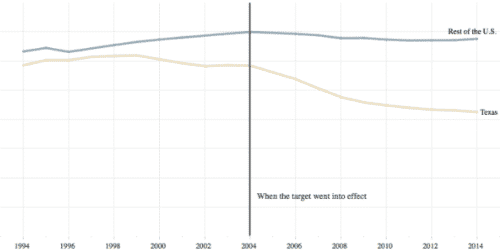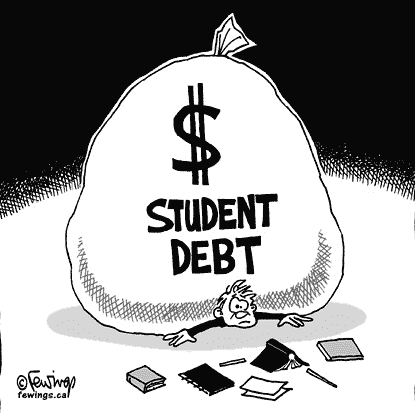Table of Contents
 09/22/2016 | Houston, TX | Houston Chronicle
09/22/2016 | Houston, TX | Houston Chronicle
How Texas keeps tens of thousands of children out of special education
Brian M. Rosenthal | Houston Chronicle | Twitter
During the first week of school at Shadow Forest Elementary, a frail kindergartner named Roanin Walker had a meltdown at recess. Overwhelmed by the shrieking and giggling, he hid by the swings and then tried to escape the playground, hitting a classmate and biting a teacher before being restrained.
The principal called Roanin’s mother.
“There’s been an incident.”
Heidi Walker was frightened, but as she hurried to the Humble school that day in 2014, she felt strangely relieved.
She had warned school administrators months earlier that her 5-year-old had been diagnosed with a disability similar to autism. Now they would understand, she thought. Surely they would give him the therapy and counseling he needed.
Walker knew the law was on her side. Since 1975, Congress has required public schools in the United States to provide specialized education services to all eligible children with any type of disability.
But what she didn’t know is that in Texas, unelected state officials have quietly devised a system that has kept thousands of disabled kids like Roanin out of special education.
To read more visit Houston Chronicle
What Texas did to its special education students
Valerie Strauss | The Washington Post | Twitter
An investigation by the Houston Chronicle has revealed that unelected state officials in Texas “arbitrarily decided what percentage of students should get special education services” more than a decade ago and then began auditing school districts that did not comply.
Their efforts, which started in 2004 but have never been publicly announced or explained, have saved the Texas Education Agency billions of dollars but denied vital supports to children with autism, attention deficit hyperactivity disorder, dyslexia, epilepsy, mental illnesses, speech impediments, traumatic brain injuries, even blindness and deafness, a Houston Chronicle investigation has found.
The newspaper’s reporter, Brian Rosenthal, found that state officials set a cap of 8.5 percent of students who should receive special-education services, far lower than the national average. According to the U.S. National Center for Education Statistics, the overall percentage of those being served in programs for students with disabilities was 12.9 percent in 2012-13, the most recent year for which statistics are available, down 13.8 percent in 2004-05. In 2015, the 8.5 percent was reached for the first time, dropping from 12 percent a dozen years ago, the newspaper reported.
To read more visit The Washington Post
09/27/2016 | Washington, DC | POLITICO
Fleeting mentions of education in first debate
Michael Stratford | POLITICO | Twitter
— Clinton talked most about education, bringing up the issue on several occasions, though only briefly. She twice mentioned “debt-free college” as part of her solution to improve the economy and she pledged to invest in education for middle-class workers. And she also pledged to help “people refinance their debt from college at a lower rate.”
— Clinton suggested that Trump doesn’t pay any federal income tax, adding that would mean he doesn’t chip in for a range of government services. That includes “zero for schools,” she said.
— Trump said that the country needs “new schools” as well as an array of other infrastructure improvements like hospitals and airports. He lamented “we don’t have the money because it’s been squandered on so many of [Clinton’s] ideas.”
To read more visit POLITICO
Here’s where Hillary Clinton and Donald Trump stand on education
Abby Jackson | Business Insider | Twitter
Education policy has largely been a second-tier issue in the 2016 presidential election.
Hillary Clinton and Donald Trump, the Democratic and Republican presidential nominees, have focused their comments and discussions mostly on issues like national security, trade, and an email scandal.
Still, in Trump’s case, education discussions have followed him as he remains enmeshed in multiple lawsuits filed by former students of Trump University that accuse him of defrauding thousands of customers with worthless classes on real estate and investing.
In any case, both Trump and Clinton have given some indication about the issues they would back in the White House.
Here’s where the candidates fall on the big education issues.
To read more visit Business Insider
 09/30/2016 | Washington, DC | Fortune
09/30/2016 | Washington, DC | Fortune
For-Profit Colleges Account for a Third of All Federal Student Loan Defaults
Lucinda Shen | Fortune | Twitter
Over one-third of federal student loan defaults can be attributed to students at for-profit schools.
Students at for-profit colleges accounted for 35% of defaults during the three year period starting in 2013—down from 44% two years earlier, according to new data from the Department of Education, released Wednesday. Though it should be noted that students at for-profit colleges account for just 26% of all borrowers.
The report measured the number of students or former students who had failed to make a payment for 360 consecutive days since the loan was first issued during the fiscal year ending September 2013.
That comes at a time the DoE has been increasingly cracking down on for-profit colleges such as ITT Technical Institute, DeVry, Corinthian Colleges, and Brown Mackie College. Critics have accused for-profit institutions of deceiving consumers and pushing low-income students into costly loans.
To read more visit Fortune
Warren Blasts Dept of Ed. for ‘Hounding’ Students Defrauded by For-Profit School
Lauren McCauley | Common Dreams | Twitter
Sen. Elizabeth Warren (D-Mass.) is taking a stand for the tens of thousands of students who, first, were defrauded by the now-defunct, for-profit Corinthian College system and now, according to an investigation by her own staff, are being “hounded” by the U.S. Department of Education (DOE) to pay off those debts.
In a searing letter (pdf) to DOE secretary John King on Thursday, Warren said that the department’s student loan bank is pushing nearly 80,000 former Corinthian College students into some form of debt collection, despite assurances that they would be eligible for loan discharges.
“It is unconscionable that instead of helping these borrowers, vast numbers of Corinthian victims are currently being hounded by the Department’s debt collectors,” she wrote, “many having their credit slammed, their tax refunds seized, their Social Security and Earned Income Tax Credit (EITC) payments reduced, or their wages garnished—all to pay fraudulent debts that, under federal law and the Department’s own policies, are likely eligible for discharge that thus, invalid.”
To read more visit Common Dreams
For-profit colleges: 6 things to ask before enrolling
Katie Lobosco | CNN Money | Twitter
For-profit colleges have a ton of critics who’ve accused schools of luring in low-income students with false promises and then providing a subpar education.
The government found that to be true at the now defunct network of Corinthian Colleges. And ITT Tech, which shut down this year, was facing numerous lawsuits that claimed it misled prospective students about how many graduates actually found employment in their fields of study.
The government believes some students were so wronged, that it’s forgiving their student debt.
DeVry University and the Education Management Corporation, which owns the Art Institutes, Argosy University, Brown Mackie College, and South University, have also been sued for deceiving students.
To read more visit CNN Money
InformED Report is brought to you in cooperation with American ED TV and MindRocket Media Group

